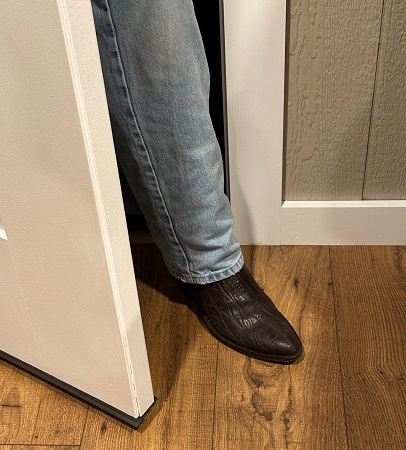Foot in the Door
 My friend Collin White recently got his foot in the door for a lifelong dream. He performed on stage at the Grand Ole Opry. For anyone, that is quite a feat (pun intended). For a young man still in college, it’s nothing short of amazing.
My friend Collin White recently got his foot in the door for a lifelong dream. He performed on stage at the Grand Ole Opry. For anyone, that is quite a feat (pun intended). For a young man still in college, it’s nothing short of amazing.
 To get a foot in the door means the first step toward a goal.
To get a foot in the door means the first step toward a goal.
Collin wants to sing professionally. He already sings in community, school, church, and multi-state events. He has released two songs. Both fit the Christian country genre. His dream is falling into place, one step at a time.
To get a foot in the door occasionally refers to a pushy person.
Such people use aggressive tactics. Door-to-door salespeople who stick their feet in doors so homeowners can’t close them come to mind. Their behavior often proves self-defeating (another pun intended). Instead of reaching their goals, they turn people against them.
That does not describe Collin. Instead, he puts his best foot forward.
The greatest door of opportunity remains open for all.
Jesus extends an invitation for:
- Forgiveness
- Salvation
- Guidance
- A home in heaven.
Never pushy, Jesus waits patiently for our response. It’s up to us to invite Jesus into our lives and to follow Him.
“Here I am! I stand at the door and knock. If anyone hears my voice and opens the door, I will come in and eat with that person, and they with me” (Revelation 3:20 NIV).
Thanks to Tracy Crump and Beckham Wilson for the suggestion and to Jill and Steve Floyd and Collin White for the photos.
Do you have an expression you want explained or a thought about this one? If so, please comment below.
Subscribe to receive my weekly posts by email and receive a free copy of “Words of Hope for Days that Hurt.”
If you enjoyed this post, please share it with your friends.








